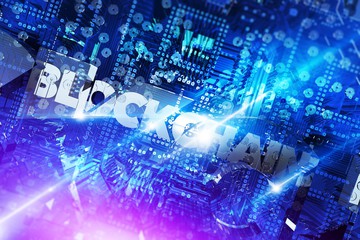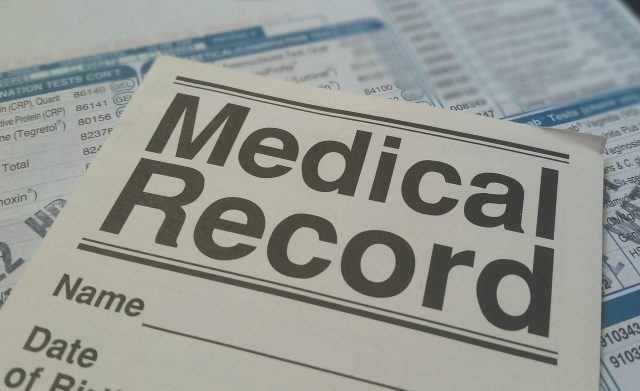Currently, there is a lot of hype about blockchain, even though most people don’t even know what it is. Blockchain is now hitting tech news headlines everywhere—it’s how cryptocurrencies like Bitcoin keep an ever-increasing and ongoing record of financial transactions.
If you trade with cryptocurrency or give it to someone else, the transaction will be recorded in a blockchain ledger. The ledger deploys cryptography, and every item in the ledger is a block that is “chained”.
And of course, there are many crypto exchange platforms, such as Independent Reserve, allowing investors to trade cryptocurrencies. However, our primary focus is to find out the other uses of Blockchain other than currency.
5 Uses For Blockchain That’s Not Currency
1. Chronicled
Legal documents usually have sensitive data. Chronicled applies its technology to secure data using a blockchain implementation.
Besides legal documents, Chronicled can also record and secure IoT tracking, supply chain and other data types. They offer an entire system that implements mobile applications, Bluetooth, Blockchain, NFC and IoT.
Chronicled is open sourcing a gadget used to register connected devices on the Ethereum blockchain—this will establish a standard for the emerging IoT (Internet of Things).
Often referred to as an ‘interbreed of Carfax and Wikipedia’ for consumer goods, the site will register the identities of Bluetooth Low Energy (BLE) chips and near-field communication (NFC), components of IoT that currently allow smartphones to ‘communicate’ with other devices.
Although IoT is hailed as an inevitability, technology gurus claim that fragmentation of standards has withheld its adoption.
Currently, companies are individually developing their way for devices to ‘talk’. The creators of Chronicled intend to utilise the Ethereum blockchain to build secure IoT data bank registries interoperable.
2. Refugee Aid
A substantial number of people globally become refugees each year. The experience of being a refugee is dreadful for most people.
Refugees usually need financial aid since they can’t afford their basic needs. An instance of a vast humanitarian crisis is the turmoil in Syria.
Enter blockchain.
One of the greatest-ever executions of the Ethereum blockchain for a benevolent cause has just completed a triumphant trial.
The project was concluded on 31st May 2017, and it was overseen by the United Nations World Food Programme (WFP).
It was designed to forward resources to thousands of refugees in Syria by offering them cryptocurrency-based vouchers. These vouchers were redeemable in participating markets.
The platform was used successfully to authenticate and record transfers for approximately 10,000 people; this was exclusively revealed to CoinDesk. Parity Technologies implemented the platform—Parity is a startup company led by Gavin Wood, the co-founder of Ethereum and Datarella, a blockchain big data firm.
The funds given to the refugees by the WFP were mainly used to buy food items like pasta, lentils and olive oil. The WFP collects comprehensive analytics, like the exact number of transactions conducted.
3. Elections Fraud
Elections or voter fraud is another issue that gets as much attention as blockchain. Most people misunderstand and overestimate this matter in some ways. A case in point is that almost everyone who loves Bernie Sanders isn’t a “Russian bot”.
Additionally, people are unlikely to participate in voter fraud. But the machines used for voting used in the United States are incredibly insecure; a proven cyber security risk is foreign elections interference.
Follow My Vote developers have established how to use blockchain to enhance election voting security. Today, voting is full of illegitimate accusations. This is common because of the current methods and systems in use, which are very vulnerable.
Follow My Vote is working on solving this crisis via innovative technologies. The accuracy of election results will be achieved through a voting platform that can bring transparency into elections without compromising voters’ privacy.
Follow My Vote is ensuring that this happens by applying elliptic curve cryptography and blockchain technology to create an open-source site that is secure and utterly verifiable from end to end.
4. Medical Records
Almost all of us have digital medical records. These records contain sensitive and personal data that are prone to cyber-attack
MedRec has invented a way to utilize the blockchain to secure medical records.
Electronic Medical Records (EMRs) crave invention. The regulations that have been in place for years have suppressed tech development in the sector of medical data management—while fragmented data trails and a line-up of back-end systems that are incompatible limit the ability of patients to access their medical history.
MedRec is a solution fine-tuned to meet the needs of patients, medical researchers and the treatment community. It uses novel, blockchain smart contracts to build a system for content management that is decentralized for your healthcare reports across providers.
The authentication log for MedRe governs medical access while offering means for data sharing and audibility. A modular make merges with existing local data storage solutions for providers, allowing interoperability and making the system adaptable and convenient.
The key feature of MedRec is to provide the medical research community with a role that is integral to the protocol.
Medical researchers give the ‘mining’ required to sustain and secure the authentication log on a secure Ethereum web, in return for preserving privacy, medical metadata in transaction fees form.
5. Helps with Monitoring Supply Chains
Blockchain also comes in handy when monitoring supply chain activities. For example, supply chain teams can eliminate paper-based trails and be able to determine any inefficiencies resulting from their supply chain activities and locate items in time.
Furthermore, blockchain technology helps consumers and businesses to monitor quality control of products moving from the point of origin to retailers.
In addition to improving efficiency, it can improve their partner relationships and customer satisfaction. While this is a major benefit for supply chain management, it’s important to note that the use of blockchain is still in its infancy.
Bottom Line
Blockchain exhibits a lot of promise for various practical applications, even for those skeptical of the advantages of cryptocurrency. As technology advances, cybersecurity will be more challenging.
Blockchain’s novel implementation of record-keeping and cryptography is on its way to becoming a necessary tool to secure and keep track of data. Stay tuned to discover what developers and computer scientists will do with blockchain in the near future.











